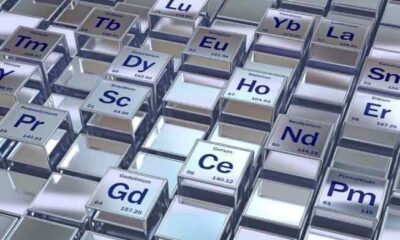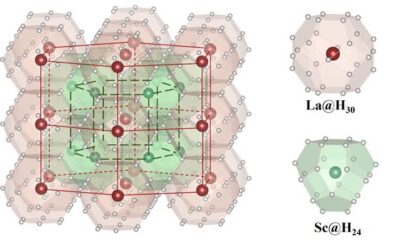Top Stories
Green Tea and Red Wine: Exploring Their Cancer-Fighting Potential

Research is revealing that two popular drinks, green tea and red wine, may play a significant role in supporting cancer treatment. These beverages do not replace conventional therapies such as chemotherapy or radiotherapy; rather, they could enhance their effectiveness and mitigate side effects.
Green Tea: A Powerful Ally Against Cancer
Green tea, which has its roots in first-century China, is celebrated not only for its cultural significance but also for a range of health benefits. Historically, it has been linked to anti-aging effects, brain and heart health, and weight management. Recent studies highlight its potential in cancer treatment, particularly due to a compound known as epigallocatechin gallate (EGCG).
EGCG is a potent antioxidant that protects cells from damage caused by free radicals and environmental stress. Its capabilities extend beyond mere protection; it disrupts the energy production processes of cancer cells, effectively targeting the proteins that facilitate tumour growth and division. By interfering with these processes, EGCG can lead to cancer cell death.
Excitingly, early research indicates that EGCG may enhance the efficacy of traditional cancer treatments. This could potentially decrease the required doses of chemotherapy and radiation, thereby reducing the associated severe side effects. For those seeking a more concentrated form of green tea, matcha offers increased protection, as it is made from whole ground tea leaves and contains significantly higher levels of EGCG.
Red Wine: A Distinct Approach to Tumour Vulnerability
Red wine also presents intriguing possibilities in cancer treatment, primarily due to a compound called resveratrol. Found in red grapes, blueberries, and peanuts, resveratrol has been shown to support various bodily functions, including heart, liver, and brain health.
Unlike EGCG, which directly targets cancer cells, resveratrol focuses on the tumour’s microenvironment. Cancer cells often create a protective network of blood vessels and supportive tissues that facilitates their growth. Resveratrol disrupts this network, making tumours more susceptible to conventional treatments. Furthermore, it enhances the immune system’s ability to recognize and attack cancer cells.
Perhaps most importantly, resveratrol inhibits the formation of new blood vessels, effectively starving tumours of the nutrients they need to thrive. Without this blood supply, tumours may ultimately shrink and die.
The potential of natural compounds in fighting cancer extends beyond just these beverages. For instance, apigenin, found in parsley, has been shown to slow tumour growth. Similarly, turmeric, which contains curcumin, disrupts cancer cell survival, while emodin, present in aloe vera and rhubarb, reduces inflammation and inhibits cancer growth.
Despite these promising findings, researchers face challenges related to the absorption of these natural substances within the body. Current studies are focused on improving delivery systems, such as encapsulating these compounds in tiny lipid structures known as nanoparticles. This method aims to protect the compounds and increase their effectiveness against tumours.
Research has also shown that combining certain compounds can enhance absorption. For example, mixing piperine, found in black pepper, with curcumin can significantly improve the bioavailability of curcumin-based nanoparticles in cancer therapies.
While the research on these natural substances is still in its early stages, the prospect that everyday foods and drinks could one day play a role in cancer treatment presents an exciting area of study in medical science. The next time one reaches for a cup of green tea or a glass of red wine, it may be worth considering their potential to bolster the body’s natural defenses against cancer.
-

 Entertainment3 months ago
Entertainment3 months agoAnn Ming Reflects on ITV’s ‘I Fought the Law’ Drama
-

 Entertainment4 months ago
Entertainment4 months agoKate Garraway Sells £2 Million Home Amid Financial Struggles
-

 Health3 months ago
Health3 months agoKatie Price Faces New Health Concerns After Cancer Symptoms Resurface
-

 Entertainment3 months ago
Entertainment3 months agoCoronation Street’s Carl Webster Faces Trouble with New Affairs
-

 Entertainment3 months ago
Entertainment3 months agoWhere is Tinder Swindler Simon Leviev? Latest Updates Revealed
-

 Entertainment4 months ago
Entertainment4 months agoMarkiplier Addresses AI Controversy During Livestream Response
-

 Science1 month ago
Science1 month agoBrian Cox Addresses Claims of Alien Probe in 3I/ATLAS Discovery
-

 Entertainment4 months ago
Entertainment4 months agoKim Cattrall Posts Cryptic Message After HBO’s Sequel Cancellation
-

 Entertainment3 months ago
Entertainment3 months agoOlivia Attwood Opens Up About Fallout with Former Best Friend
-

 Entertainment6 days ago
Entertainment6 days agoCoronation Street Fans React as Todd Faces Heartbreaking Choice
-

 Entertainment3 months ago
Entertainment3 months agoMasterChef Faces Turmoil as Tom Kerridge Withdraws from Hosting Role
-

 Entertainment4 months ago
Entertainment4 months agoSpeculation Surrounds Home and Away as Cast Departures Mount




















